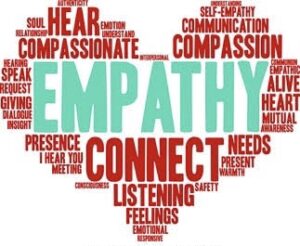
Is Parental Guidance such a big deal? Is Parental Guidance real?
What is this Parental Guidance thingy?
You probably have questions like these and more so, let’s talk about it!
An interesting thing to know is that Parental guidance is highly rated, but the most interesting fact is that if parents had an idea what parental guidance entails, they’d checkmate what their kids see on Television. Yes! You saw it right.
Film rating is entwined with parental guidance. One would not make a great point about parental guidance without talking about film rating because they have the same agenda, which is to guide us on the right choice of programs we allow our children to watch on Television.
These days parents and guardians have little or no understanding of Film rating and probably do not know the different types of film rating(s) and how to apply it/them rightly.
In real sense, film rating broadens our horizons in teaching us about films or TV programs that are suitable or not suitable for a particular age group.
Just like there are characteristics of things, film rating comes in different types. It would be of great value to a parent to have a proper understanding of each one of them.
General Audiences, G is first on the types of film rating. As a parent or guardian, if you’re about to see a movie and it shows ‘G’ it means the program or movie is suitable for all ages, so kids can watch it with their parents or an older person. This film rating has got you covered, so you need not worry about chasing your child or ward to their bedrooms.
PG is next on the list. Parental Guidance, PG suggests that films or programs may not be suitable for children under a particular age, because most of those movies or programs contain some adult pictures or scenes that may not be helpful to younger children. Under this movie rating, parental guidance is strictly advised.
Are these all? No! There’s more on the list.
Next is PG-13. Under this film rating, it implies that some materials may not be appropriate for children
who are under 13 years, so children from 13 years and above are qualified to watch. This movie guide advises parents or guardians to be cautious about the movies they see with children under 13years.
R 15+: This film rating suggests that movies or TV programs are not suitable for children who are under the age 15 years. Also, people who are 15 and above can be admitted or allowed access to movies and Tv programs under this film rating, but often time in film houses an I.D card is requested for qualification.
Next on the list is NC-17: Not for children under 17 years. NC-17 is a film-industry rating in the US officially granted by the Motion Picture Association of America. Under this film rating, movies or TV programs aren’t applicable for children who are under the age of 17 years, because movies or programs may contain extensive amount of sex, violence and bad languages that aren’t suitable for children who are under 17.
R 18+: Movies or TV programs with this film rating indicate that people who are under the age of 18 years aren’t qualified because there are inappropriate contents that aren’t suitable for persons under 18 years.
Last but not the least is R-Restricted: under this film rating, parents are advised to learn more about the movies or TV programs before allowing their young wards/children to watch them.
Very important to note, If a film has not been submitted for a rating, it would show Not Rated (NR) or Unrated (UR).
Parents should always look out for their kids and the kind of programs they’re exposed to on TV.
Research made suggests that television viewing is rated to a host of negative outcomes in children. And in most cases, television viewing is associated with aggression, fear and many negative vices if exposed to wrong Television contents or programs.
Not disputing the fact, if children are exposed to the right movies or television programs that are suitable for their ages, it would go a long way in moulding them into better children.
Not just about the film rating. Are there any stringent rules set to limit the hours your kids/wards spend on TV each day? No? You must be kidding me!
According to google statistics on how much time children spend on TV, 40 percent of children between the ages of 2 – 8 years spend about 3 – 4 hours watching TV every day, and more than 70 percent of children ages 8 – 18 years have TVs in their bedrooms. According to Google, this age group spends 4 – 5½ hours each day watching TV in various forms that may likely not help them grow to be intellectually and mentally sound.
These days parents do not draw a line between the kind of programs or TV shows children view and the time they spend on it.
Parents/Guardians should not forget that children are prone to practice what they see on Television and may become intellectually unsound because they spend more hours watching TV than studying or doing things that will boost their intellects and prepare them for their futures. Yes! Their futures, because what they watch and how they use their free time will either make or mar them. So, teach them Parental guidance! Teach them how to use their free periods. Engage them in activities that will take their minds off TV for a while.
Parental guidance should be strictly adhered to. Don’t forget this: “The contents children view and time they spend each day watching Television will go a long way in helping their mental and intellectual growth”. Don’t forget to guide your child right.




Parenting is a huge responsibility most people ain’t prepared for. Unfortunately these days most couples are either too busy trying to meet up with work responsibilities and bills and the children at home are left to themselves (as long as they are preoccupied and not troubling Mum and Dad, they are cool. The truth is every stage of a child’s growth and development is vital for their social, emotional, intellectual, psychological balance, and parents ought to pay attention and provide the right guidance and support for the child’s growth through every stage.
You’ve clearly made a great point, but do you have more ideas on how parents that are extremely busy with work can tackle the social, emotional, intellectual growth of their children without always being there?. Our readers will be pleased to learn more. Thanks.
Interesting Article… Keep it up